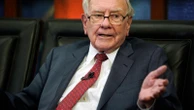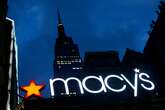For a decade, Dr. Bronner’s has been a certified B Corp, a designation issued by the nonprofit B Lab that confirms a company has met certain environmental, social, and governance standards. But now the soap company is dropping its B Corp certification without plans to renew. Dr. Bronner’s says B Lab’s standards are weak, and that some multinational corporations are now using its seal—an encircled B, which became a symbol that businesses can be “a force for good”—as a form of greenwashing.
Dr. Bronner’s mainly takes issue with B Lab’s increasing certifications of multinational corporations like Unilever Australia, Nespresso, and Nestle Health Science—and the fact that these businesses are not required to provide third-party certifications on the humans rights or environmental impacts of their supply chains. Instead, a business can still get a B Corp certification by scoring high in other assessment areas, like if it monitors waste or has a certain percentage of management from underrepresented populations.
To Dr. Bronner’s, this means B Lab is failing to ensure that its certification “won’t be used to mislead consumers,” David and Michael Bronner, CEO and President of Dr. Bronner’s, said in a joint statement. “Sharing the same logo and messaging regarding being of ‘benefit’ to the world with large multinational CPG companies with a history of serious ecological and labor issues, and no comprehensive or credible eco-social certification of supply chains, is unacceptable to us.”
A B Lab spokesperson says the nonprofit remains “deeply committed” to its mission, and that “catalyzing business as a force for good is a journey rather than a destination.” It has been working with its member businesses, advocacy groups, and independent experts to strengthen its standards, and in early 2025 will publish new requirements. These updated standards, the spokesperson says, “address today’s most urgent social and environmental challenges, providing clear, impactful requirements that companies must meet in order to deliver leadership and systemic change.”
Dr. Bronner first became a certified B Corp in 2015, the same year it became a benefit corporation—a separate, unrelated legal designation that allows companies to pursue social good instead of simply profit. In the years since, it’s become one of the top-scoring B Corps. The company currently has an overall score of 206.7, while the B Corp website notes that the median score for “ordinary businesses” is 50.9. (It’s also reportedly the highest score ever awarded by the nonprofit). The minimum score to become a certified B Corp is 80 points over five areas: governance, workers, community, environment, and customers.
B Corp’s logo has graced thousands of brands, including notably progressive ones like Patagonia and Ben & Jerry’s. Dr. Bronner’s says its B Corp fee is paid through September 2025, but that the company won’t renew after that point. It’s also begun removing the B Corp logo from branding and marketing materials.
For the past few years, Dr. Bronner’s has been pushing B Lab to improve its standards—especially after larger companies joined the B Corp community. In 2022, the Nestlé-owned coffee company Nespresso announced that it received B Corp certification, setting off a wave of backlash from other B Corps. Just two months after that announcement, 30 certified B Corps—including Dr. Bronner’s—signed an open letter to B Lab protesting the certification, pointing to the history of child labor and wage theft on farms that grew Nespresso’s beans.
B Lab’s standards have been questioned before, especially as the number of certification submissions has surged. And B Lab has taken action against some companies for behaviors that go against its ethos. In 2022, Scottish brewery BrewDog announced it was no longer a certified B Corp—though they said their status wasn’t revoked, just that they withdrew after B Lab “requested additional measures” that they couldn’t fulfill. (BrewDog received scrutiny after its certification from former employees who said the company’s culture compromised their health and safety.) In 2024, B Lab stripped Havas, a French public relations company, of its certification because of the agency’s relationship with Shell.
But it’s mostly B Lab’s certification of multinational companies that has received the most criticism, especially from its own B Corp community. It’s these large companies that are using their B Corp certification as a marketing ploy, Dr. Bronner’s says in its statement. Dr. Bronner’s has been pushing B Lab to require companies, especially those multinational corporations, to certify all major supply chains.
“The raw agricultural materials a company uses—whether meat, milk, eggs, palm oil, cocoa, coffee, cotton, and any others—are often produced in terrible ways in terms of social and environmental impact, “ the Bronners said. Requiring third party eco-social certification for major multinational supply chains would, they added, “protect against the B Corp Certification being misused by companies to hide these unsustainable and unjust corporate practices.”
They acknowledged that some certified B Corps do already practice this, including Patagonia, another prominent example of a purpose-driven business. But, they said, “they are unfortunately a minority and this is not required by B Lab, most glaringly in the case of large multinational companies and their enormous supply chains.”










No comments